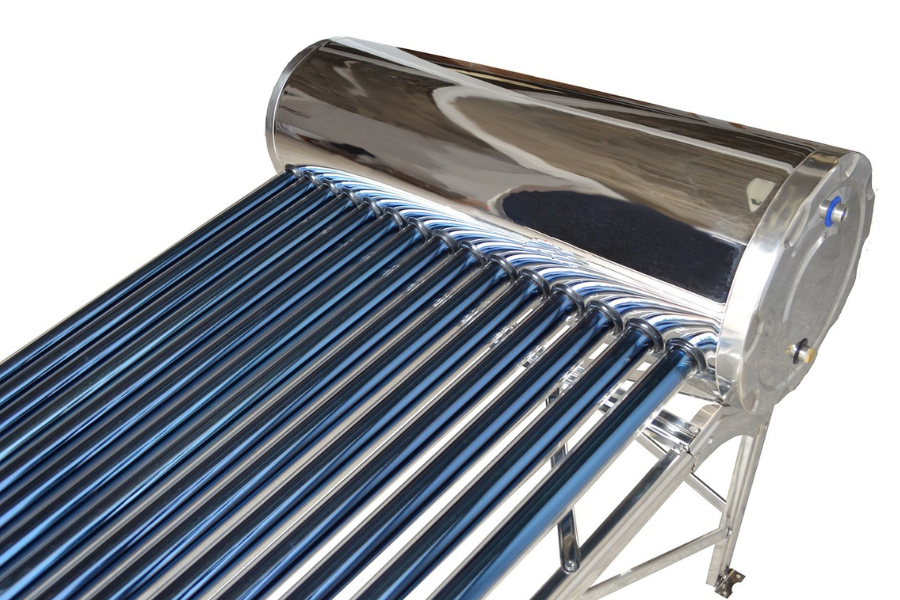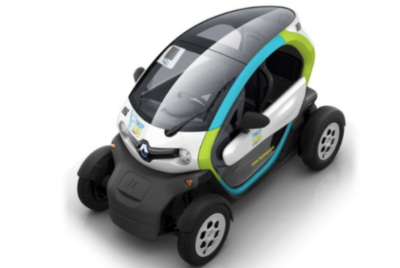Benefits of Solar Water Heaters
As a passionate advocate for solar energy, I am thrilled to share insights into an eco-friendly and cost-effective solution for your hot water needs – solar water heaters. In this article, we’ll explore the benefits of solar water heaters, their functionality, advantages, installation, and much more. So, let’s dive into the radiant world of harnessing solar power to heat your water efficiently.
Harnessing the Power of the Sun for Efficient Hot Water
Solar water heaters are ingenious devices that leverage the abundant and renewable energy source we have right at our fingertips – the sun. They offer a sustainable and environmentally friendly alternative to traditional water heaters, reducing our reliance on fossil fuels and lowering our carbon footprint.
How Solar Water Heaters Work
To truly appreciate the brilliance of solar water heaters, it’s essential to understand the intricacies of their operation. These remarkable devices are designed to capture the sun’s radiant energy and transform it into the hot water that you use daily. Here’s a more detailed look at the inner workings of solar water heaters:
1. Solar Collectors: The Sun’s Embrace
Solar collectors, the heart of the system, are typically installed on rooftops or in open areas with ample sunlight exposure. These collectors consist of a network of specially designed panels or tubes that are responsible for harnessing the sun’s rays.
2. Absorption of Sunlight: Creating Heat
When sunlight strikes the surface of the solar collectors, a remarkable process begins. These collectors are constructed with materials that efficiently absorb solar radiation. In simple terms, they soak up sunlight like a sponge absorbing water.
3. Conversion into Heat: The Magic Begins
As the collectors absorb sunlight, they convert this radiant energy into heat. This transformation occurs thanks to a phenomenon known as the photovoltaic effect, where certain materials generate an electrical current when exposed to sunlight. In the case of solar collectors, this electrical current is transformed into heat energy, warming the collector’s interior.
4. Transfer Fluid: The Heat Carrier
Inside the collector, there’s a specially formulated fluid, often a mixture of water and glycol (a type of antifreeze). This fluid serves as the carrier of the absorbed heat energy. As it circulates through the collector, it undergoes a substantial temperature increase.
5. Heat Exchange: From Fluid to Water
Here comes the ingenious part. The heat-carrying fluid, now significantly hotter than when it entered the collector, is pumped to a heat exchanger. This is a crucial component of the system, and it serves as the intermediary between the solar collector and your home’s plumbing.
6. Warm Water Production: The Final Step
Inside the heat exchanger, the scorching hot fluid transfers its heat to the cold water that flows through your home’s plumbing system. This exchange of thermal energy causes the cold water to heat up significantly. By the time this water reaches your faucets, showers, or appliances, it’s transformed into the piping hot water you need for various domestic purposes.
And there you have it – a seamless and sustainable process that allows you to enjoy hot water without the need for conventional energy sources like electricity or gas. By efficiently capturing and converting the sun’s energy, the benefits of solar water heaters include saving money and contributing to a greener and more sustainable future. It’s a technology that combines innovation, environmental consciousness, and practicality to deliver the warmth and comfort you desire.
Types of Solar Water Heaters
There are two primary categories of solar water heaters: passive and active systems. Passive systems rely on natural convection to circulate water, making them simpler and more reliable but less efficient. Active systems, on the other hand, use pumps to move the heat-transfer fluid, offering greater control and efficiency. Within these categories, you’ll also find direct and indirect systems, each suited to different climates and water quality.
Advantages of Solar Water Heaters
Embracing solar water heaters brings a myriad of benefits:
• Environmental Benefits: Solar water heaters are a clean energy solution, reducing greenhouse gas emissions and helping combat climate change.
• Cost Savings: By harnessing free sunlight, you can significantly lower your energy bills, with the potential for a return on investment over time.
• Reliability and Low Maintenance: These systems are designed to be robust and have relatively few moving parts, translating to long-term reliability with minimal upkeep.

Installation and Placement: The Art of Solar Optimization
To harness the full potential of solar water heaters, meticulous installation and strategic positioning of the solar collectors are of paramount importance. Here’s a closer look at why these factors matter so much:
1. Solar Collector Orientation: Following the Sun
Imagine the solar collector as a hungry sunflower, eagerly following the sun across the sky throughout the day. For optimal performance, it’s crucial to position the collector where it can bask in sunlight for the longest duration. This means facing it towards the sun’s path, typically southward in the Northern Hemisphere and northward in the Southern Hemisphere. By doing so, you ensure that the collector receives maximum sunlight exposure during daylight hours.
2. Avoiding Shading: Keeping the Sun’s Path Clear
Shade can be the enemy of solar collectors. Even a small amount of shading, like that from a tree, chimney, or neighboring building, can significantly reduce a collector’s efficiency. During installation, meticulous planning is necessary to avoid shading. It might require trimming branches, adjusting the collector’s location, or using shading analysis tools to identify potential obstructions.
3. System Sizing: Right-Fitting for Hot Water Needs
Selecting the appropriate system size is essential to choosing the right-sized pot for cooking. If the system is too small, it may not meet your hot water demands, leaving you with lukewarm showers. Conversely, an oversized system might be cost-ineffective and take up unnecessary space. Determining the right size involves considering factors like your daily hot water consumption, geographical location, and collector efficiency.
4. Installation Guidelines: The Roadmap to Efficiency
Solar water heaters come with detailed installation guidelines provided by manufacturers. These guidelines are your roadmap to efficiency. It’s crucial to follow them meticulously to ensure that every component, from the solar collector to the heat exchanger, is installed correctly. Additionally, adhering to these guidelines is often a prerequisite for warranty coverage.
5. Professional Expertise: When in Doubt, Seek Help
While some avid DIY enthusiasts may be tempted to install their solar water heaters, it’s often advisable to seek professional help. Certified solar installers possess the knowledge and experience required to optimize system placement, sizing, and adherence to safety and building codes. They can also ensure that the installation integrates seamlessly with your existing plumbing system.
In conclusion, installation and placement considerations are the unsung heroes behind the efficiency and effectiveness of solar water heaters. By orienting collectors to embrace sunlight, avoiding shading, selecting the right system size, following installation guidelines, and, when needed, enlisting professional expertise, you pave the way for a solar water heating system that delivers the hot water you need while reducing your environmental footprint. It’s a testament to the synergy between human innovation and the sun’s boundless energy.
Maintenance and Longevity
One of the benefits of solar water heaters is relatively straightforward maintenance. Regular checks, occasional cleaning, and inspections will help ensure it operates optimally. These systems are known for their durability, with a lifespan that can extend for decades.
Financial Incentives and Rebates
Who wants a government incentive offer or rebate?
Another great benefit of solar water heaters is the potential contribution from governments for solar water heater installations.
These financial perks can make switching to solar a financially savvy decision.
Environmental Impact
By using the sun’s energy to heat your water, you’re actively participating in the global shift towards sustainable living. Reducing your carbon footprint and dependence on fossil fuels is a step in the right direction for a greener future.

Benefits of Solar Water Heaters vs. Traditional Water Heaters
Switching to a solar water heater from a traditional one offers several significant advantages that go beyond just cost savings. Here’s a detailed comparison that highlights the benefits of choosing solar water heaters:
1. Cost Savings:
• Solar water heaters utilize energy from the sun, a free and renewable resource, reducing your reliance on electricity or gas.
• While the initial investment may be higher, solar water heaters typically have lower operational costs and pay for themselves over time through reduced utility bills.
• Government incentives and rebates may further offset the upfront costs, making solar water heaters an economically smart choice.
2. Environmental Impact:
• Solar water heaters are eco-friendly, producing no harmful emissions during operation.
• By using clean energy from the sun, they reduce your carbon footprint, helping combat climate change and air pollution.
• Choosing solar water heaters contributes to a more sustainable and greener future.
3. Energy Independence:
• Solar water heaters provide energy independence, as they are not dependent on external fuel sources.
• This resilience is particularly valuable during power outages or supply disruptions, ensuring a continuous supply of hot water.
4. Longevity and Low Maintenance:
• Solar water heaters are known for their durability and longevity. With proper maintenance, they can last for 20 years or more.
• Maintenance requirements are relatively low, involving periodic checks and occasional part replacements.
5. Reliable Performance:
• Solar water heaters work efficiently in various climates, including cold and cloudy conditions, thanks to advanced technology.
• Backup heating elements can provide hot water during extended periods of adverse weather, ensuring a consistent supply.
6. Increase in Home Value:
• Installing a solar water heater can increase the resale value of your home. Buyers often perceive these systems as valuable assets, potentially leading to a higher selling price.
7. Reduced Peak Load:
• Solar water heaters can help alleviate peak electricity demand, reducing strain on the electrical grid during high-usage times.
8. Energy Efficiency:
• Solar water heaters are highly energy-efficient, converting a significant portion of sunlight into usable heat. This efficiency can result in substantial energy savings over time.
9. Lower Operating Costs:
• Solar water heaters require minimal operating costs, as sunlight is the primary energy source. This leads to more predictable and stable long-term expenses compared to conventional water heaters.
In conclusion, the advantages of solar water heaters extend beyond economic benefits to include environmental stewardship, energy independence, reliability, and enhanced home value. Making the switch to solar not only reduces your utility bills but also contributes to a cleaner, more sustainable future.
Choosing the Right Solar Water Heater
Selecting the perfect solar water heating system for your needs requires careful consideration. Factors such as your location, hot water requirements, and budget all play a role in making the right choice.
1. Budget-Friendly Solutions: Cost Considerations
Solar water heaters come in various configurations and price ranges. Your budget is a critical factor in the decision-making process. While more sophisticated and larger systems tend to be costlier upfront, they may provide greater long-term savings through reduced energy bills. However, if you have budget constraints, there are more affordable options available that can still significantly reduce your energy expenses. A balance between your financial capabilities and your desire for energy efficiency is key.
2. System Type: Active or Passive?
Solar water heaters come in two primary types: active and passive. Active systems use pumps to circulate water or heat-transfer fluid, offering precise control and efficiency. Passive systems, on the other hand, rely on natural convection to move water, making them simpler but potentially less efficient. The choice between the two depends on your hot water demands, climate, and budget. Active systems are typically more efficient but may be overkill for smaller households with lower hot water needs.
3. Warranty and Reliability: Peace of Mind
The reliability of your solar water heater is essential to ensure uninterrupted hot water supply. Investigate the manufacturer’s warranty and reliability track record before making a decision. A robust warranty can provide peace of mind, as it often covers repairs and replacements for critical components. Additionally, consider the system’s maintenance requirements to ensure trouble-free operation over the years.
In conclusion, choosing the right solar water heater is a multifaceted decision that hinges on factors like location, hot water demands, budget, system type, and reliability. By carefully evaluating these aspects and seeking guidance from reputable solar heating professionals, you can confidently select a system that aligns with your needs, providing you with eco-friendly, cost-effective, and reliable hot water for years to come. It’s a choice that not only benefits your household but also contributes to a sustainable and greener future.
FAQs
Q1: Are solar water heaters efficient during cloudy days?
A1: Yes, solar water heaters can maintain hot water availability even on cloudy days by storing excess energy generated during sunny periods.
Q2: How can I maximize the lifespan of my solar water heater?
A2: To extend the lifespan of your solar water heater, follow these tips:
• Perform regular maintenance to ensure all components function optimally.
• Protect your system against freezing temperatures in colder climates.
• Consider professional servicing for in-depth inspections and upkeep.
Q3: What should I do if the components of my solar water heater wear out?
A3: Most solar water heaters are designed for easy maintenance and component replacements. Contact a qualified technician or the manufacturer to replace any worn-out parts, ensuring your system continues to operate efficiently.
Q4: Are solar water heaters suitable for colder climates?
A4: Yes, solar water heaters can be effective in colder climates with proper insulation and system design. Cold-weather considerations may include freeze protection mechanisms to prevent damage due to freezing temperatures.
Q5: How soon can I expect to see savings after investing in a solar water heater?
A5: The payback period for a solar water heater varies, but many homeowners begin to realize energy bill savings within a few months of installation. The exact timeframe depends on factors such as your location, hot water usage, and the efficiency of your system.
Conclusion
Solar water heaters are a shining example of how we can use sustainable technology to meet our everyday needs while reducing our impact on the environment. By harnessing the power of the sun, you not only enjoy hot water but also contribute to a greener and more sustainable future. So, consider making the switch to solar water heaters – a bright choice for both your pocket and the planet.




